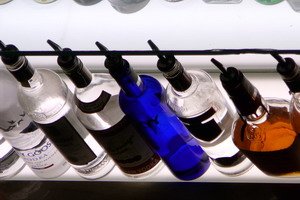
It never ceases to amaze me how people can fire off a snippy email to me when it’s obvious that they haven’t even read the entire article. (I encourage those people to keep on firing, however – I get many of my topic ideas that way, and I do have a delete button!)
A prime example of this is a column I recently wrote in response to a reader who wondered if enjoying a glass of wine or two with dinner made him an alcoholic. I recommended he carefully monitor (at home) how he feels when he has his wine and to be careful that it doesn’t lower his inhibitions enough that he drinks more than he should. Sound reasonable? I thought it did. You wouldn’t believe the ridiculous emails I got accusing me of encouraging alcoholics to drink. Really? I did nothing of the kind. Oh well, all in a day’s work.
On the other hand, I got even more emails from people who actually read the article, and they brought up some good points. Many said that after a few drinks, certain activities became more enjoyable, i.e., putting up with a mediocre or bad movie, or spending time with somebody with whom they didn’t share any interests. The writers went on to ask if that was a good enough reason to have a drink.
We all know that alcohol lowers inhibitions. There’s nothing inherently wrong with this, so long as one doesn’t lose control of one’s life because of it. Mental health professionals generally draw the line not at the number of drinks so much as whether the alcohol interferes with the subject’s basic functioning, values and goals.
I was also asked if one should be loving life as much as possible while sober. I have to admit that that one took me by surprise. Let’s take a look. Let’s say that one can enjoy a mediocre or bad movie only after a drink or two. Why is this? If one considers the movie as mediocre or bad while sober, then what happens after a drink or two? Standards relax. Inhibitions are loosened. Suddenly the movie is OK.
Obviously, if it takes alcohol to help you tolerate movies you otherwise wouldn’t watch, then this raises an important question: Why not just watch better movies and save the wear and tear on your liver? Or, why not find something better to do with your time than tolerating movies you hate? Of course the same thing applies to spending time with people who don’t interest you. If you don’t like doing something, why use alcohol to make you like it? What are you accomplishing?
Obviously there is a contradiction here. Though you’re not abusing alcohol by any conventional or objective standard, in a way you are using it to help you make less wise use of your time than you otherwise would. Again – nothing to end up in a drunk tank over, but if you must have a drink, isn’t there a better reason? For example, to temporarily relax inhibitions and put your mind at ease so you can better refuel? In that context, responsible use of alcohol can perhaps serve as an added value to the life experience. But if one uses it to stop thinking, or to distort reality in order to act in counterproductive ways, then I consider that abuse, even if it involves only a single drink.
I think my kind emailers are asking the wrong question. Maybe they should ask if the things they enjoy after a sip of wine shouldn’t also be enjoyed when they are sober. If the honest answer is no, then they’re lying to themselves, and this suggests the real question: “If I must get partially intoxicated in order to tolerate or enjoy certain things, then why am I engaged in those activities in the first place?” That’s a question they don’t need me to answer.
Be sure to “friend” Dr. Hurd on Facebook. Search under “Michael Hurd” (Rehoboth Beach DE). Get up-to-the-minute postings, recommended articles and links, and engage in back-and-forth discussion with Dr. Hurd on topics of interest. Also follow Dr. Hurd on Twitter at @MichaelJHurd1
